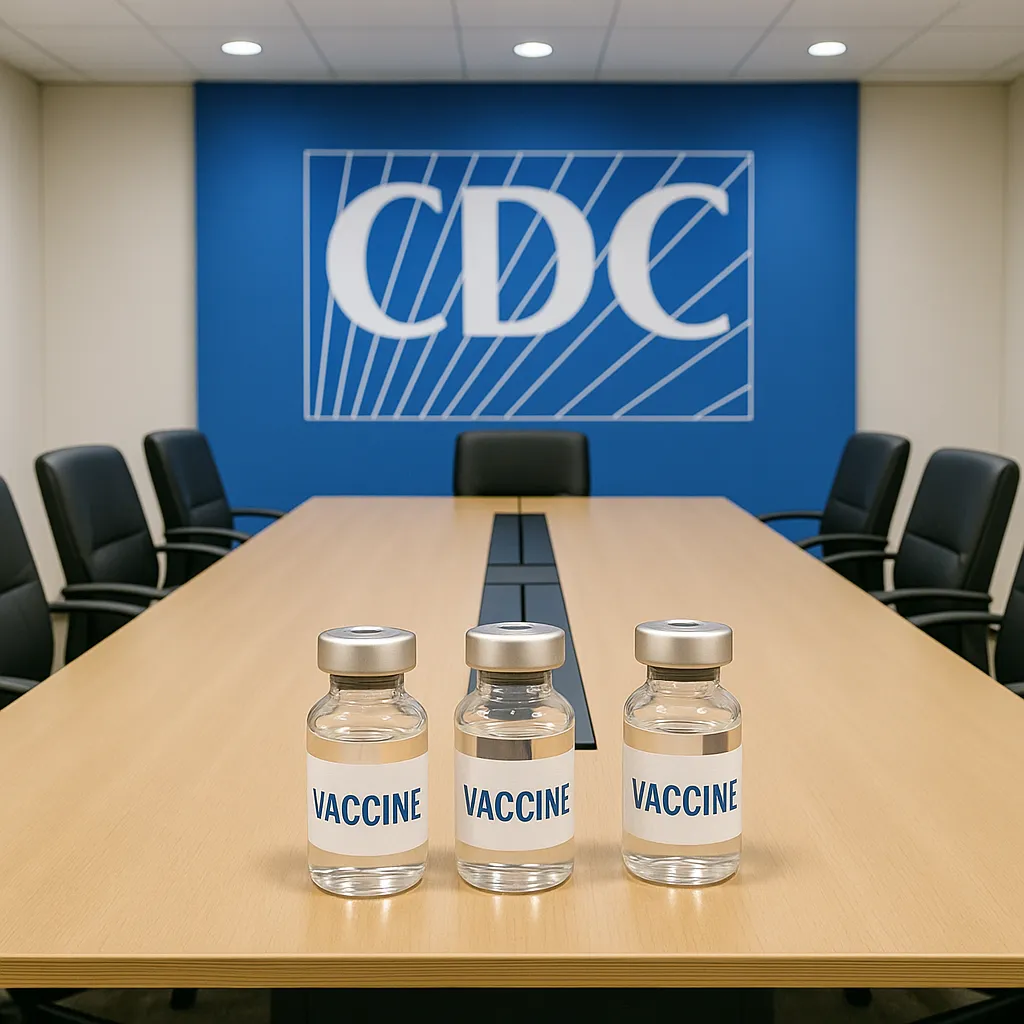CDC Panel Recommends Against MMRV Shot, Defers Hepatitis B and COVID Votes

In Atlanta on Thursday, the Centers for Disease Control and Prevention’s Advisory Committee on Immunization Practices voted to recommend against administering the combined measles-mumps-rubella-varicella (MMRV) vaccine to children under four, while deferring decisions on newborn hepatitis B and COVID-19 vaccines until Friday.
The vote marks the committee’s second meeting since Health Secretary Robert F. Kennedy Jr. replaced all 17 members this summer and underscores ongoing debates over vaccine safety, scheduling and public trust in immunization policy.
Key Decisions
- Committee voted 8-3 against the MMRV combination shot for children under four years old.
- Vote on delaying universal newborn hepatitis B vaccination moved to Friday.
- COVID-19 vaccine recommendations for all age groups scheduled for tomorrow’s session.
MMRV Vaccine Change
ACIP members argued that separate MMR and varicella shots pose a lower risk of febrile seizures than the combined MMRV dose. Supporters of the change cited studies showing a small but measurable increase in seizure risk for toddlers receiving the one-shot formulation. Opponents warned that separating the doses could reduce compliance and complicate logistics under the Vaccines for Children program.
Hepatitis B and COVID-19 Agenda
Thursday’s discussion on hepatitis B examined proposals to limit the birth-dose vaccine to infants of infected mothers pending further safety data. That vote was postponed until the committee reconvenes Friday. The panel will then consider updated fall COVID-19 booster guidelines, aiming to clarify eligible groups amid divergent state policies and public confusion.
Committee Overhaul and Controversy
The meeting unfolded in a charged atmosphere following Kennedy’s June “clean sweep” of ACIP. Critics, including former CDC directors, have accused the new appointees of harboring unscientific views and undermining confidence in established vaccine schedules. Proponents argue the shake-up restores transparency by inviting open debate over long-standing policies.
Implications for Public Health
ACIP recommendations guide insurance coverage and federal immunization programs, meaning today’s vote could reshape early childhood vaccine delivery nationwide. As parents and providers await final rulings on hepatitis B and COVID-19, public health experts caution that further delays or restrictions risk lowering vaccination rates and reviving preventable outbreaks.
Categories
Autos and vehicles Beauty and fashion Business and finance Climate Entertainment Food and drink Games Health Hobbies and leisure Jobs and education Law and government Other Politics Science Shopping Sports Technology Travel and transportationRecent Posts
Tags
Archives
08/19/2025 (3) 08/20/2025 (40) 08/21/2025 (27) 08/22/2025 (22) 08/23/2025 (4) 08/24/2025 (21) 08/25/2025 (30) 08/26/2025 (24) 08/27/2025 (29) 08/28/2025 (16) 08/29/2025 (9) 08/30/2025 (13) 08/31/2025 (17) 09/01/2025 (167) 09/02/2025 (124) 09/03/2025 (149) 09/04/2025 (112) 09/05/2025 (72) 09/06/2025 (169) 09/07/2025 (162) 09/08/2025 (150) 09/09/2025 (176) 09/10/2025 (194) 09/11/2025 (194) 09/12/2025 (186) 09/13/2025 (207) 09/14/2025 (159) 09/15/2025 (175) 09/16/2025 (198) 09/17/2025 (196) 09/18/2025 (196) 09/19/2025 (207) 09/20/2025 (129) 09/21/2025 (4)